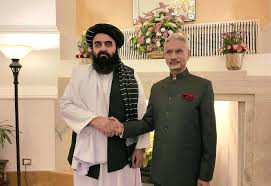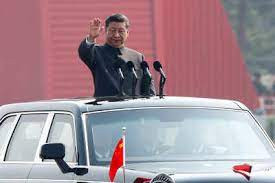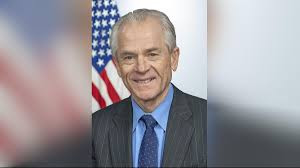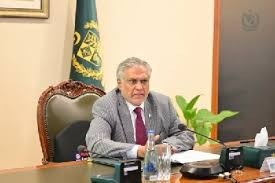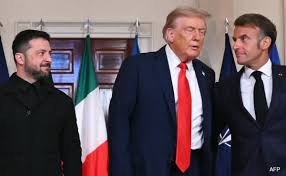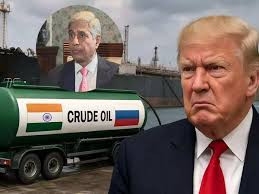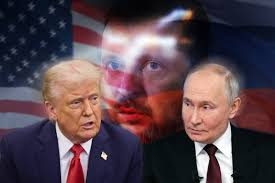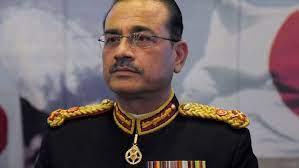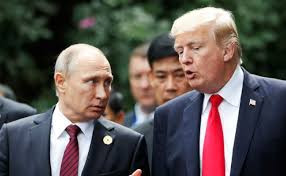Kremlin Claps Back: Putin's Spokesman Responds to Trump’s ‘Crazy’ Comment on Defending Russia
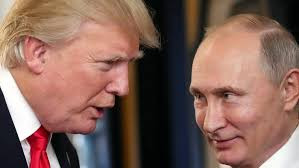
IIE DIGITAL DESK : The Kremlin has issued a sharp response to former U.S. President Donald Trump’s recent remarks in which he suggested that President Vladimir Putin would not have invaded Ukraine if Trump were in office, and referred to the current U.S. leadership’s dealings with Russia as “crazy.” The comment, which was seen by Moscow as both inflammatory and ironic, prompted a measured yet pointed rebuttal from the Russian government.
During a political rally and in various media appearances, Trump claimed that had he still been president, Russia would not have dared to launch a full-scale invasion of Ukraine. He went on to criticize President Joe Biden’s handling of the war, suggesting it pushed Putin into a corner. Trump’s insinuation that the Biden administration’s policies were “crazy” and escalatory provoked reactions from both Western analysts and, notably, the Kremlin.
On Monday, Kremlin spokesperson Dmitry Peskov addressed Trump’s statements during a regular media briefing in Moscow. While Peskov refrained from escalating the rhetoric further, his tone clearly conveyed irritation.
“We prefer not to comment on the internal political battles of the United States,” Peskov began. “However, when such statements are made that imply the Russian leadership’s decisions are dependent on foreign electoral outcomes, it is both simplistic and misleading.”
Peskov further added, “President Putin acts in Russia’s strategic interest and in accordance with our national security doctrine. To reduce such decisions to hypothetical scenarios in a different political climate is not serious analysis—it’s political theater.”
The Kremlin’s reaction also hinted that Trump’s comments could be aimed more at stirring his domestic voter base than reflecting any real understanding of Moscow’s motivations. Analysts in Moscow observed that Russia, while aware of Trump’s previous diplomacy with Putin, views both Trump and Biden through the lens of long-term U.S.-Russia rivalry that goes beyond individual presidencies.
Notably, Trump has often touted his relationship with Putin as a diplomatic achievement, arguing that his approach to foreign policy ensured global stability without triggering war. However, critics argue that Trump’s soft stance on authoritarian leaders allowed aggressive ambitions like Russia’s to simmer beneath the surface, ultimately manifesting after his departure from office.
Trump’s recent labeling of the Biden administration’s support for Ukraine as “crazy” also comes amid a highly polarized political climate in the U.S., with funding for Ukraine becoming a contentious topic in Congress. While Republicans remain split, Trump has consistently voiced skepticism about America’s financial and military support to Kyiv.
In contrast, the Biden administration maintains that unwavering support to Ukraine is vital for the defense of democracy and international law. Biden has repeatedly said that allowing Putin to succeed would send a dangerous message to other authoritarian regimes.
The Kremlin, for its part, has used Trump’s divisive rhetoric as proof of growing discord in U.S. politics, occasionally amplifying such remarks on Russian state media to bolster its narrative that the West is chaotic and hypocritical.
This latest war of words underscores how the conflict in Ukraine continues to ripple through global political discourse, influencing not only battlefield strategies but also election narratives thousands of miles away.
Though Peskov avoided directly insulting Trump, his firm rebuttal made it clear that Moscow resents being painted as a pawn in Western political games. As the U.S. approaches its 2024 presidential election, the Kremlin will undoubtedly be keeping a close eye on how Russia policy becomes a flashpoint in American campaign debates.
You might also like!


